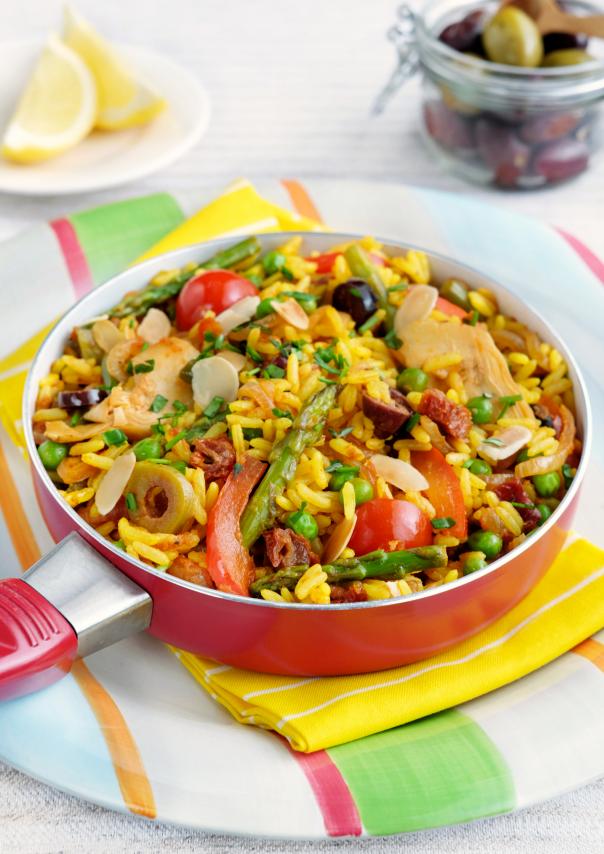
Today, one in three Brits have stopped or reduced their meat consumption and, perhaps surprisingly, older people (65 to 79 years) are leading the way. They are twice as likely to have reduced their meat consumption as 18- to 24-year-olds.
Unsurprisingly then, there are over 7,500 vegetarians and vegans in UK care homes. In addition, many older people being cared for at home, or visiting lunch clubs, or using home-delivery catering services are making plant-based choices.
As vegetarians and vegans age, it does not mean that their ethical concerns wane at all. They require nutritionally-balanced meals that tickle their tastebuds. Although expectations of the catering sector are higher than ever, it has never been easier to develop and produce vegetarian and vegan dishes.
Recipes are in abundance and suppliers stock multiple animal-free options. The charity Vegetarian for Life is an authority on diet and healthy living advice for older vegans and vegetarians, and it works to improve the standard of vegan and vegetarian catering in care.
This involves providing training opportunities for chefs, free recipes, guides on different aspects of food provision such as texture and nutrition, and they maintain a list of settings in the UK that make a special effort to support these residents.
An example of these is Chris Bonner, the executive chef and Nutrition and Hydration Lead at HC-One who recently signed up to the charity’s Memory Care Pledge – five fundamental principles to which settings sign up to ensure their residents are able to live comfortably and eat the way they choose for the rest of their lives, even if there is a loss of capacity.
He says: “I’ve been in the care sector for 11 years, and at first I expected the stereotype – cabbage soup every day, and twice on Sundays. But, actually, residents have very complex needs. They’re a mixed bag of people, coming from very different backgrounds, levels of wealth, and so on, and I need to find what works for everybody.
“I realised early on that I wanted to make a difference and help make others aware, and the Memory Care Pledge fits in perfectly with that. It’s not just about what nutrition people need, but about what they want to eat.”
VfL chef Justina Kesterton encourages caterers to find what interests them and who they are catering for. She says: “It’s very important for caterers to know their target market; perhaps there will be people who are less likely to experiment and want their food more ‘familiar’ such as gravy with potatoes. If so, then we try recipes to accommodate that and instead of making red Thai curry we will practice to make a perfect nut roast.”
Chris Bonner of HC-One adds: “We’re there to provide a service, not just stay in our own comfort zones. Good food keeps residents healthy, and giving people food they want to eat is going to prevent weight loss and all the problems that come with that.
“If we’re to cater for our residents and make ourselves attractive to this growing segment of the market, we’re going to have to inform and educate ourselves.”
One way caterers can do this is by attending one of Vegetarian for Life’s Care Caterer Training Days. Chief executive Amanda Woodvine explains: “Our team of roving chefs can deliver bespoke caterer training for you, in-house or at a choice of guest kitchens throughout the UK. It includes access to our online training series for your whole team and practical cookery demonstrations.”
Sophie Murray, governance and regulation manager at Harbour Healthcare, took up the offer at her former home. She says: “It was an excellent balance of theory of nutrition and practice in a professional kitchen. Taste-testing highly nutritious foods was an extra bonus for each attendee.”
VfL chef Alex Connell says: “During training sessions I focus time on planning menus. I encourage chefs to look at the whole experience of food and drink. By planning ahead this will not only make the life of caterers easier but also the customers’ experience better.
“Teamwork is key in catering and the better the communication is the more smoothly your operation will go. Getting clear systems in place and labelling foods will, in the long run, save time.”
Amanda Woodvine continues: “By providing excellent vegetarian and vegan options, caterers are doing more than feeding mouths but are essentially supporting people’s individuality and sense of control – aspects of life we take for granted but that may have otherwise been compromised for some because of frailty or ill health. A plant-based diet is not only good for humans and animals but it is proving great for the environment too.”
For more information about supporting vegetarians/vegans in care, training opportunities, and free nutritional guides and recipes, go to www.vegetarianforlife.org.uk.